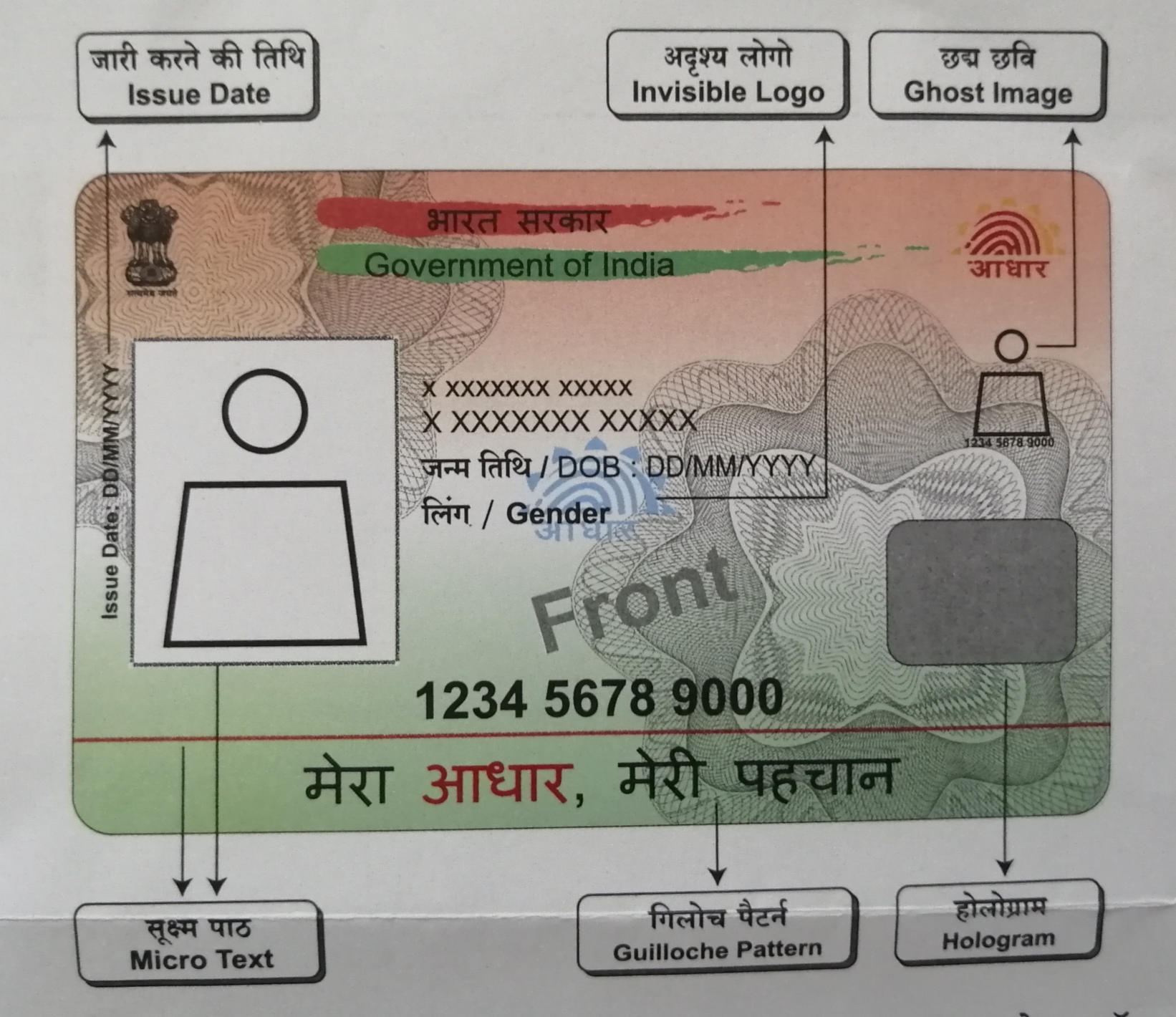Aadhaar Card Holder Has Fundamental Right to Seek Alteration of Name and Other Details

Introduction
In a significant pronouncement, the Madurai Bench of the Madras High Court, in P. Pushpam v. Director, UIDAI & Anr.[1], held that an Aadhaar card holder possesses not merely a statutory but a fundamental right to seek alteration or correction of demographic and biometric details under Section 31 of the Aadhaar (Targeted Delivery of Financial and Other Subsidies, Benefits and Services) Act, 2016. The Court emphasized that the right to seek correction of Aadhaar details when linked to the right to receive social welfare benefits acquires the character of a fundamental right under Article 21 of the Constitution of India, as interpreted in K.S. Puttaswamy (Aadhaar-5J.) v. Union of India[2].
Table of Contents
Facts and Background
The petitioner, P. Pushpam, a seventy-four-year-old widow of an ex-serviceman who had served twenty-one years in the Indian Armed Forces, approached the Court seeking correction of her Aadhaar details. Her name was incorrectly recorded as “Pushbam” instead of “Pushpam,” and her date of birth was wrongly mentioned as 25 June 1952 instead of 7 June 1952.
Following the death of her husband on 23 May 2025, the petitioner’s request for transfer of the family pension could not be processed due to these discrepancies. Despite several representations to local authorities and the UIDAI Regional Office at Bengaluru, no corrective action was taken, compelling her to seek judicial intervention under Article 226 of the Constitution for a writ of mandamus.
Statutory and Regulatory Framework
The Court closely examined Section 31 of the Aadhaar Act, 2016, which provides the right to request alteration of demographic and biometric information recorded in the Aadhaar database. Section 31(1) allows the Aadhaar number holder to request such alteration; Section 31(2) mandates verification; and Section 31(3) empowers the UIDAI to make the change “if satisfied.”
Further, Regulation 16 of the Aadhaar (Enrolment and Update) Regulations, 2016, read with Chapter IV and Schedule II, prescribes the procedure and acceptable documents for updating Aadhaar data. Pension orders and pensioner photo identity cards are explicitly listed in Schedule II as valid proof for the date of birth.
The petitioner produced her husband’s pension order, which clearly recorded her correct date of birth as 07 June 1952, thereby satisfying the evidentiary requirements under the Regulations.
Issues Before the Court
- Whether the petitioner had a right to demand correction of Aadhaar details under Section 31 of the Aadhaar Act, 2016.
- Whether the UIDAI was under a statutory or constitutional obligation to provide adequate and accessible infrastructure to ensure the effective exercise of that right.
- Whether the denial or delay in facilitating such corrections violated the petitioner’s right to life and dignity under Article 21.
Court’s Analysis and Reasoning
Nature of the Right Under Section 31
Court observed that Section 31 was enacted to ensure accuracy and authenticity in the Aadhaar database. While subsection (3) uses the term “may,” the Court held that, in context, it conveys a duty rather than mere discretion. Once the Authority is satisfied that documentary evidence supports the requested correction, the alteration becomes obligatory.
This interpretation was justified by applying the doctrine that statutory powers meant to confer benefits should be exercised in a manner that advances the purpose of the statute rather than frustrates it.
Documentary Proof and Compliance with Regulations
The Court noted that the petitioner’s pension order qualified as a valid document under Schedule II of the Aadhaar Regulations, 2016, and that no further proof was necessary. Consequently, UIDAI was directed to affect the correction based on this document and the Court’s order.
Accessibility and Administrative Duty
Taking judicial notice of the limited number of Aadhaar Seva Kendras (ASKs) in Tamil Nadu only one located at Madurai serving several southern districts the Court criticized the lack of infrastructure that forces citizens, particularly the elderly, to stand in long queues for routine demographic updates.
The Court held that while biometric updates may require physical presence, demographic updates must be enabled locally. The existing 4,056 Aadhaar enrolment centres in Tamil Nadu could easily be equipped to handle demographic changes under Section 31.
Invoking the maxim Quando lex aliquid alicui concedit, conceditur et id sine quo res ipsa esse non potest (i.e. when the law grants a right, it also grants the means to exercise it), the Court concluded that the grant of a statutory right under Section 31 necessarily implies a correlative administrative duty to create infrastructure and ensure accessibility.
Linkage with Fundamental Rights
The Court drew extensively from K.S. Puttaswamy (Aadhaar-5J.) v. Union of India[3], where the Supreme Court upheld the constitutional validity of the Aadhaar Act but recognized the role of Aadhaar in ensuring targeted delivery of benefits.It was observed that when the right to update Aadhaar is linked to the right to receive social welfare benefits, it transcends the statutory sphere and becomes part of the right to life and dignity under Article 21. The Court further referred to Manoj Narula v. Union of India[4], to underline that good governance includes efficient implementation of statutory rights.
Empirical and Policy Considerations
To highlight systemic difficulties, the Court referred to an investigative article published in The Wire on 6 August 2025 titled “Queues, Rejections, Ambiguity: The Daily Trials of Wanting a Working Aadhaar.” The Court endorsed the article’s recommendations for decentralization, capacity building, grievance redressal, and real-time status tracking of update requests.
Final Directions
The writ petition was accordingly allowed. The Court directed the petitioner to appear before the Aadhaar Seva Kendra, Madurai, along with a copy of the order and her pension order, where the correction to the date of birth was to be made “without much ado.” It further directed the Office of the Defence Accounts (Pensions), Allahabad, to expeditiously transfer the pension account in the petitioner’s favour once the Aadhaar correction was completed. The Court also recorded the submission of UIDAI that twenty-eight Aadhaar Seva Kendras would be established across Tamil Nadu by March 2026 and expressed hope that each district headquarters would soon have such a facility. No order as to costs was made, and the Registry was instructed to forward a copy of this judgment to the UIDAI without delay.
Conclusion
This judgment marks a crucial advancement in the judicial interpretation of digital identity rights in India. By elevating the statutory right to correct Aadhaar details to the level of a fundamental right, the Madras High Court has reaffirmed the constitutional principle that administrative convenience cannot override individual dignity and access to entitlements.
In my considered opinion, the judgment stands as a reminder that welfare governance in a digital age must prioritize inclusivity and accessibility. The Court’s insistence on decentralization and infrastructure creation underscores the practical dimension of constitutionalism rights must not remain theoretical ideals but must translate into tangible, user-friendly processes.
The reasoning harmoniously integrates administrative law principles, statutory interpretation, and constitutional values. It reinforces that the Aadhaar system, while a tool of governance, must remain citizen-centric. This decision, if effectively implemented, will ensure that every Aadhaar holder especially the marginalized and elderly can assert their right to identity and benefits with dignity and without bureaucratic barriers.
For more details, write to us at: contact@indialaw.in
[1] W.P.(MD) No. 29394 of 2025
[2] (2019) 1 SCC 1
[3] (2019) 1 SCC 1
[4] (2014) 9 SCC 1
By entering the email address you agree to our Privacy Policy.



